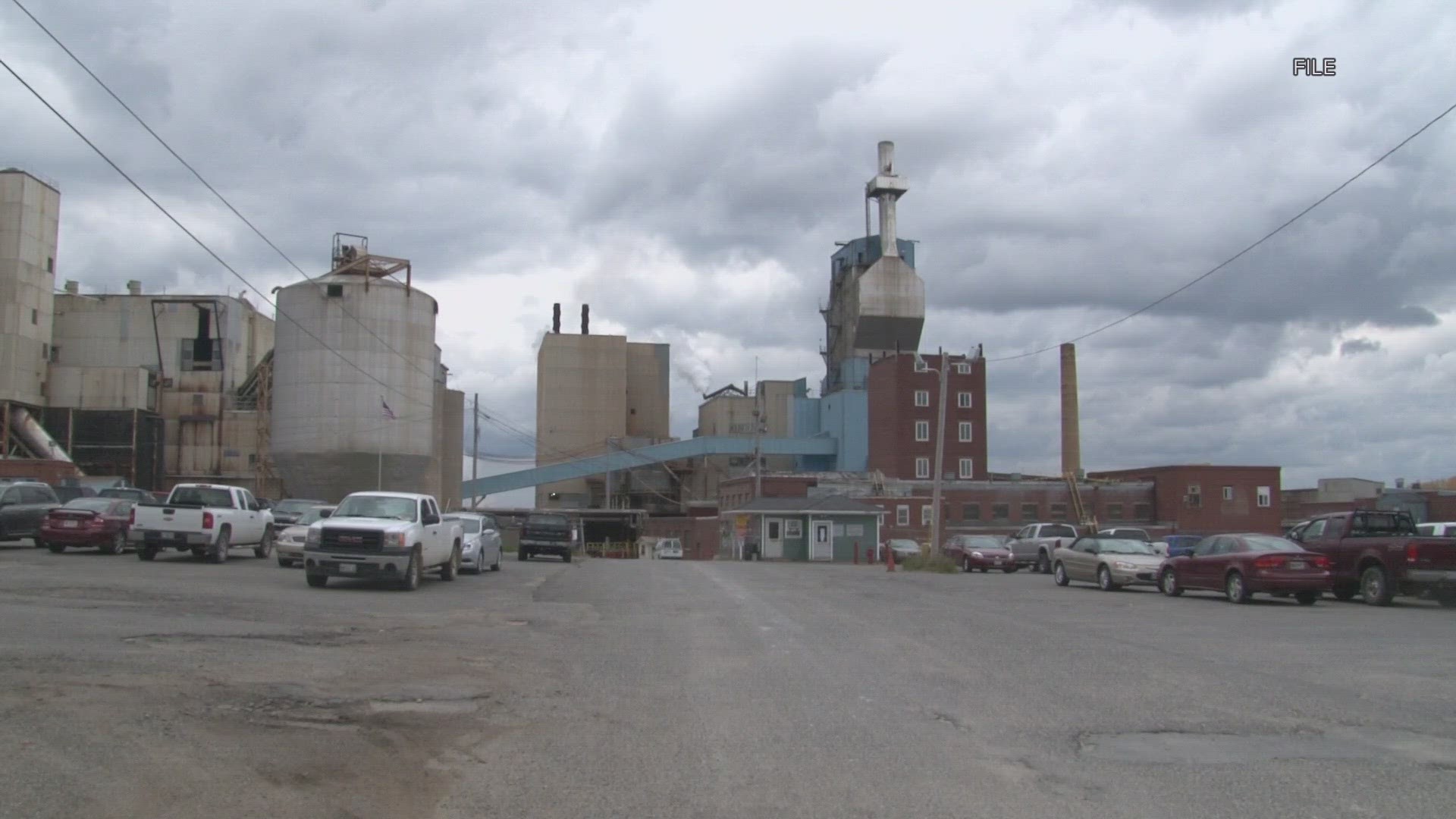LINCOLN, Maine — Biofine Developments Northeast (BDNE) has announced its partnering with the Town of Lincoln with plans to develop a biofuels refinery on the former site of the Lincoln Pulp & Tissue Mill, which is now known as the Lincoln Technology Park.
The Lincoln Town Council voted on March 20 to approve a 20-plus year lease between the company and the town, a news release from BDNE said Wednesday.
“After many months of negotiations and working through the numerous siting issues associated with the Lincoln Pulp & Tissue mill site, the Town of Lincoln is delighted to complete this stage of the process and look forward to the start of construction," Lincoln Town Council Chair George Edwards said in the release. "We view this significant biorefinery project as just the beginning of an exciting economic revitalization of the old mill site, with other beneficial projects to come."
"The Biofine Maine Phase 1, or 'BMP1' project is expected to require a private sector investment of over $100 million and create over 160 jobs," the release said. "Subsequent project phases could result in the ultimate creation of nearly 500 jobs and substantial additional private investment."
The company is proposing the development of BMP1 as the first of multiple phases for a project aimed at the development of green biorefinery capacity on a portion of the former mill site in Lincoln, according to the release.
"Utilizing Biofine’s proprietary technology, Biofine’s process derives heating and transportation fuel from cellulosic low-quality woody biomass (pre-commercial thinnings and production leavings or 'slash'), and/or from cellulosic post-consumer paper waste," the release stated.
The company also said Wednesday the fuel that would be produced from BMP1—ethyl levulinate (EL)—would be the "single lowest carbon-intensity liquid fuel commercially available anywhere in the world."
According to the release, Biofine has demonstrated the technology over the course of many years at the Forest Bioproducts Research Institute at the University of Maine in Orono.
From 125 tons of cellulosic wood waste a day, BMP1 is expected to produce 3 million gallons of EL a year, as well as produce coproducts such as levulinic acid and biochar, the company said.
The company added plans for additional phases in the project are expected to increase that production close to tenfold.
“Biofine is honored and very pleased to reach this milestone with the Town of Lincoln. EL is an important transitional and long-term renewable biofuel that accretes value to producers and end-users alike for decades to come. We are proud to call Lincoln our hometown," Stephen Fitzpatrick, CEO of BDNE, said in the release.
Construction for the project is slated to begin by July 2024.
More NEWS CENTER Maine stories

